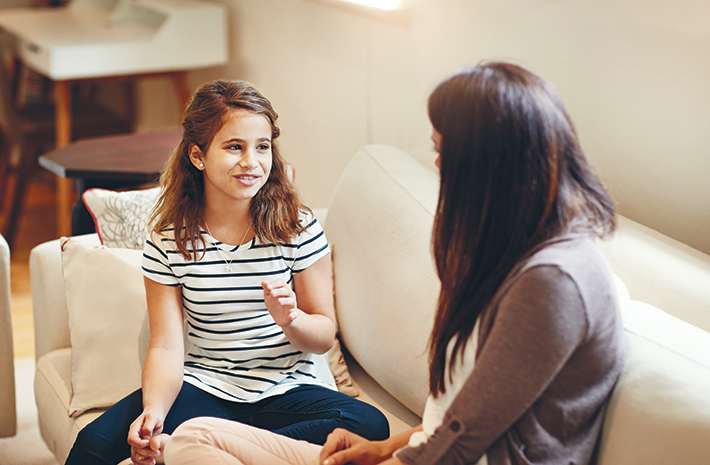Award-winning program teaches communication, peer pressure resistance
Story by Maura Oprisko
Peer pressure makes the teenage years one of the most difficult stages for families to navigate. The U.S. Department of Health and Human Services found in a 2015 study that 17 percent of students in grades 9-12 reported drinking alcohol for the first time before age 13, and 44 percent reported obtaining it from a peer. That’s why, in 2016, Purdue Health and Human Sciences Extension (HHS Extension) introduced to Indiana the Strengthening Families Program: For Parents and Youth 10-14.
According to Barbara Beaulieu, HHS extension specialist, “All families have strengths, but the preteen and early teen years can be very challenging to families because it’s in this age range, 10 to 14 years of age, that teens start pulling away from their families and are more influenced by their peers.”
Strengthening Families Program: For Parents and Youth 10-14, which is generally offered at no cost to families, operates nationally for parents and kids ages 10-14, and works to build skills that strengthen the parent-child relationship, contributing to the resistance of peer pressure. Its effective results have gained recognition and awards from organizations like Blueprints for Healthy Youth Development, the Office of Juvenile Justice, the
U.S. Department of Education, and the Annie E. Casey Foundation.
Beaulieu says that when HHS Extension searched for a substance misuse prevention program, Strengthening Families Program: For Parents and Youth 10-14 hit all the right marks.
“This program is for both youth and adults, which many other programs don’t cover,” she says. “And it’s not just for families who are already having difficulties. It’s helpful for any family.”
Monica Jarret, mother of 14-year-old Cheron and participant in the Terre Haute program, agrees.
“It definitely opened up our communication barriers that were slightly building at that age, because we were kind of coming to a standstill,” she says.
During their participation, Cheron and her peers were separated from the adults, and both groups independently participated in exercises and worked through materials that helped them understand the mind of the other. But in each session, the two groups would come together again and participate in communication-building exercises.
And the benefits of the experience didn’t solely come from the material.
“It was fun!” Jarret says. “We really enjoyed the experience. It gave me such an opportunity to spend that little bit of time together each week and learn to build on something.”
If you or someone you know is interested in participating, visit purdue.edu/hhs/extension/programs to find a practitioner in your area.
More Life 360 Stories
Alumni
- Dean’s Message
- 2012-19 Campaign Initiatives
- HHS alumni score for professional sports teams
- HHS students and alumni giving back
- Who's Your Favorite Teacher?
- HHS celebrates Giant Leaps during Purdue's sesquicentennial
Faculty
- Dean’s Message
- Culinary experience transcends reality
- Our Teaching Best
- HHS Award-Winning Teachers
- Sustaining the simple joys of life
- Nursing project tackles overmedication at Indiana nursing homes
- Who's Your Favorite Teacher?
- Inaugural dean steps down, feeling pride in HHS’ strength, confidence in its future
- HHS celebrates Giant Leaps during Purdue's sesquicentennial
Milestones
- News
- 2012-19 Campaign Initiatives
- Inaugural dean steps down, feeling pride in HHS’ strength, confidence in its future
Students
- Culinary experience transcends reality
- International Success Stories
- HHS students and alumni giving back
- Who's Your Favorite Teacher?
- HHS celebrates Giant Leaps during Purdue's sesquicentennial

